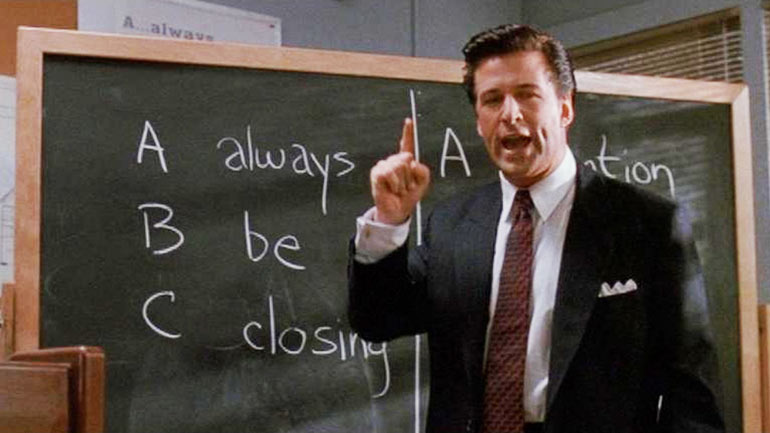QUESTION: NAME ONE CHARACTERISTIC ABOUT THIS GENERATION OR TIME IN HISTORY THAT MAKES BECOMING AN ENTREPRENEUR EASIER OR MORE REWARDING THAN EVER BEFORE.
MODERN MENTORSHIP MODEL
“Because this is the first digital generation, aspiring entrepreneurs have an opportunity to use social/mobile software they’ve grown up with to build a network of people navigating their careers together for the first time. This network opens the door for mentorship. Technology has completely revolutionized the traditional mentorship model!”
EASE OF GLOBAL COMMUNICATION
“I think this is the best time in history to become an entrepreneur because you can run a lucrative operation right from your home. This is because the speed of communication is lightning fast, and you have the ability to connect with the best resources all over the world. Since you are not bound by location nearly as much, individuals are able to create a stellar organization worldwide.”
FLEXIBLE DEFINITION OF A “JOB”
“This generation has abandoned the idea of working for years at one company until retirement, making the flexible nature of entrepreneurship more acceptable. It’s not uncommon to have many clients, short- or long-term, and to continually innovate to retain and attract new clients. Instead of bouncing from job to job, entrepreneurs appreciate shorter term interactions that add value for everyone.”
TODAY’S ACCELERATED LEARNING
“Thanks to modern technology and the Internet, the world is now hyper connected for almost anyone with a desire to leverage it. These platforms of information super highways allow knowledge to be obtained, shared, improved up, then re-shared — all within days, if not hours. Accelerated learning means entrepreneurs today will have easier time to use these knowledge to help build their success.”
ACCESS TO ABSOLUTELY EVERYTHING
“The gap between creativity and technology is becoming narrower by the day. What Web 2.0 has done is given us access to people we might never have otherwise been able to reach before. That’s incredibly powerful!”
ALWAYS CONNECTED, WIRED AND TIRED
“While it may not be a good thing to be tired and caffeinated to keep going, entrepreneurs have the fuel to keep going like the Energizer bunny. With technology surrounding entrepreneurs, it makes it easy to communicate, promote, and work in the fast-paced commerce world that we rely on instantaneous contact for.”
EVERYTHING IS CHEAPER!
“Today you can start a WordPress blog, choose and tweak a design, assemble a killer team, craft a meaningful brand, distribute your product/content, fund it, and build an engaged community for basically no money. We did it — and it only gets easier for you to do it, too!”
LOW BARRIERS TO ENTRY
“The obvious ones are that technology costs are the lowest, and the time it takes to develop your online presence are the shortest they have ever been. However, if you look at Gen Y, you will see a very high unemployment rate. Many have no choice but to create their own living and can easily find others their own age to co-found with them. It all adds up to very low barriers to entry.”
NO CHOICES MAKE FOR EASY DECISIONS
“For many, the hardest part about entrepreneurship is taking the initial plunge. In an economic recession where regular jobs aren’t readily available, people are quickly running out of options. An individual with a goal and only one option to achieve it is a dangerous person to bet against.”
LOCATION INDEPENDENCE IS AWESOME
“We live in unprecedented times, primarily due to the Internet. With the right business model, it’s possible to work from anywhere in the world with an Internet connection. No longer must we confine and define what we do by where we live. That is a profound and inspiring shift commerce. Carpe diem!”
THE JOBS ACT
“The JOBS Act is going to fundamentally transform the way companies get started, making it easier to obtain startup funding and democratizing the fundraising process to let companies seek capital from investors across the country –not just from Silicon Valley. There’s never been such a user-friendly startup ecosystem, or a better time to become an entrepreneur.”
IT’S SOCIALLY ACCEPTABLE
“Starting your own business used to be thought of as hokey or not a real job, but now, entrepreneurs earn prestige and are looked upon as doing something “real,” not something made up. You face a lot less pushback from society for pursuing something of your own today, which makes it easier to move forward with it, since others are more supportive of your choice.”
FAILURE IS A COMMON THING
“Before, failure was the ultimate shame. Today, failure is seen as more of a learning tool, just as long as you bounce back. Your brilliance is no longer based on just your successes, but also how you overcome tough obstacles.”
The Young Entrepreneur Council (YEC) is an invite-only organization comprised of the world’s most promising young entrepreneurs. In partnership with Citi, the YEC recently launched #StartupLab, a free virtual mentorship program that helps millions of entrepreneurs start and grow businesses via live video chats, an expert content library and email lessons.




 As an entrepreneur, I’ve found that my biggest challenge is figuring out which tasks to tackle each day. Do I work on marketing? Sales? Update the website copy? Improve our internal training program? There have been days when I’ve been so overwhelmed by my options that I’ve become completely stuck — I couldn’t get anything done.
As an entrepreneur, I’ve found that my biggest challenge is figuring out which tasks to tackle each day. Do I work on marketing? Sales? Update the website copy? Improve our internal training program? There have been days when I’ve been so overwhelmed by my options that I’ve become completely stuck — I couldn’t get anything done. Starting my company Gloss and Glam was the best thing I ever did. But before I opened my business, I spent countless hours speaking to lawyers, accountants, and other entrepreneurs trying to figure out next steps. Save yourself countless hours — and the possible headache of making a huge foundational mistake — by getting these five things straight before you start up:
Starting my company Gloss and Glam was the best thing I ever did. But before I opened my business, I spent countless hours speaking to lawyers, accountants, and other entrepreneurs trying to figure out next steps. Save yourself countless hours — and the possible headache of making a huge foundational mistake — by getting these five things straight before you start up:


 “Although it is historical fiction, Forrest Gump is one of my favorite inspirational movies that has entrepreneurial ties. My takeaway is that everyone has challenges that they have to overcome in life, but how you respond to them is what separates the people who succeed from those who don’t. Also, it is important to persevere and take advantage of unique opportunities presented to you.”
“Although it is historical fiction, Forrest Gump is one of my favorite inspirational movies that has entrepreneurial ties. My takeaway is that everyone has challenges that they have to overcome in life, but how you respond to them is what separates the people who succeed from those who don’t. Also, it is important to persevere and take advantage of unique opportunities presented to you.” “I always watch Twister with a sense of awe. Yes, it’s fiction, but the idea that you believe so much in a solution to risk life and limb to get it out there is inspiring. Throughout the film, they continually test and adapt the solution until it finally works. I may not be putting my solution in front of a tornado, but it’s that level of dedication I’m striving towards.”
“I always watch Twister with a sense of awe. Yes, it’s fiction, but the idea that you believe so much in a solution to risk life and limb to get it out there is inspiring. Throughout the film, they continually test and adapt the solution until it finally works. I may not be putting my solution in front of a tornado, but it’s that level of dedication I’m striving towards.” “This movie talks about Coco Chanel and her journey to starting her company. The true takeaway is that you never know what’s going to work in your business, and that sometimes starting with hats will lead to perfume or vice versa. Being uncompromising about your tastes will also lead to having a strong brand.”
“This movie talks about Coco Chanel and her journey to starting her company. The true takeaway is that you never know what’s going to work in your business, and that sometimes starting with hats will lead to perfume or vice versa. Being uncompromising about your tastes will also lead to having a strong brand.” “Zoolander contains the best entrepreneurship wisdom I know: “What is this? A center for ants?…The building has to be at least … three times bigger than this!” It’s a great lesson in remembering your dreams should be at least three times bigger than what you originally thought – and that they’ll be at least three times as much work!”
“Zoolander contains the best entrepreneurship wisdom I know: “What is this? A center for ants?…The building has to be at least … three times bigger than this!” It’s a great lesson in remembering your dreams should be at least three times bigger than what you originally thought – and that they’ll be at least three times as much work!” “Dave is a classic Kevin Kline movie where he stands in as the President. As the chief, he needs to lead a massive organization: he has to find his own leadership style, rally a team and make compromises on his vision. The most relevant takeaway: he’s successful specifically because he has an outside opinion. Startup success relies on being open-minded and re-examining the way things are done.”
“Dave is a classic Kevin Kline movie where he stands in as the President. As the chief, he needs to lead a massive organization: he has to find his own leadership style, rally a team and make compromises on his vision. The most relevant takeaway: he’s successful specifically because he has an outside opinion. Startup success relies on being open-minded and re-examining the way things are done.” “No, I’m not encouraging or condoning anyone who commits fraud, violates SEC regulations, or acts like a sociopath. However, that does not mean there aren’t some great things for entrepreneurs in the movie. One positive takeaway from Boiler Room is Seth’s relentless hustle and scrappiness. He just crushes through problems (both good and bad) and get’s stuff done!”
“No, I’m not encouraging or condoning anyone who commits fraud, violates SEC regulations, or acts like a sociopath. However, that does not mean there aren’t some great things for entrepreneurs in the movie. One positive takeaway from Boiler Room is Seth’s relentless hustle and scrappiness. He just crushes through problems (both good and bad) and get’s stuff done!” “From the greatest book ever written, there are lots of movie adaptations, but the 1972 version with Sophia Loren is best. What better representation of an entrepreneur than an idealist who sets out to revive some important value in the world while the world thinks he’s crazy? Through a series of entrepreneurial “adventures.” he comes to greater realizations about life, love, meaning and value.”
“From the greatest book ever written, there are lots of movie adaptations, but the 1972 version with Sophia Loren is best. What better representation of an entrepreneur than an idealist who sets out to revive some important value in the world while the world thinks he’s crazy? Through a series of entrepreneurial “adventures.” he comes to greater realizations about life, love, meaning and value.” “A film I particularly enjoyed is called Startup.com, which chronicles the short history of the failed website govWorks.com. This site was created to provide citizens an easy way to pay traffic tickets to municipal governments, among other things. The film teaches you that you can’t launch a business based solely on an idea; you must do thorough research it to see if it’s viable and can last.”
“A film I particularly enjoyed is called Startup.com, which chronicles the short history of the failed website govWorks.com. This site was created to provide citizens an easy way to pay traffic tickets to municipal governments, among other things. The film teaches you that you can’t launch a business based solely on an idea; you must do thorough research it to see if it’s viable and can last.” “Andy Dufrense is an entrepreneur, even if it’s not obvious: he grows a small tax preparation business inside prison walls into a library and education system into a full-fledged successful prison break. The scene that sticks with me is when Dufrense finds out that his letter writing campaign has paid off — he responds that he’s going to write even more letters, just like a good founder would.”
“Andy Dufrense is an entrepreneur, even if it’s not obvious: he grows a small tax preparation business inside prison walls into a library and education system into a full-fledged successful prison break. The scene that sticks with me is when Dufrense finds out that his letter writing campaign has paid off — he responds that he’s going to write even more letters, just like a good founder would.” “Your great idea will strike in the midst of a challenge. Classic Diane Keaton, career-driven new mom in the ’80s, quits her demanding job to focus on a baby. While in the midst of her breakdown, she discovers an unserved market with a huge demand in natural baby food. The lesson to take away is that opportunities are everywhere – if you’re paying attention!”
“Your great idea will strike in the midst of a challenge. Classic Diane Keaton, career-driven new mom in the ’80s, quits her demanding job to focus on a baby. While in the midst of her breakdown, she discovers an unserved market with a huge demand in natural baby food. The lesson to take away is that opportunities are everywhere – if you’re paying attention!”











 It’s never the wrong time to de-clutter and simplify. Just as you should bring fresh air into a stuffy house, you can also breathe life into a company to achieve an improved state of success.
It’s never the wrong time to de-clutter and simplify. Just as you should bring fresh air into a stuffy house, you can also breathe life into a company to achieve an improved state of success. It is not easy to be the CEO of an up-and-coming startup, especially when you are frequently out of your office talking to investors and the actual time you spend in contact with your team is limited. It gets even more complicated when you manage multiple teams working in different cities.
It is not easy to be the CEO of an up-and-coming startup, especially when you are frequently out of your office talking to investors and the actual time you spend in contact with your team is limited. It gets even more complicated when you manage multiple teams working in different cities.
